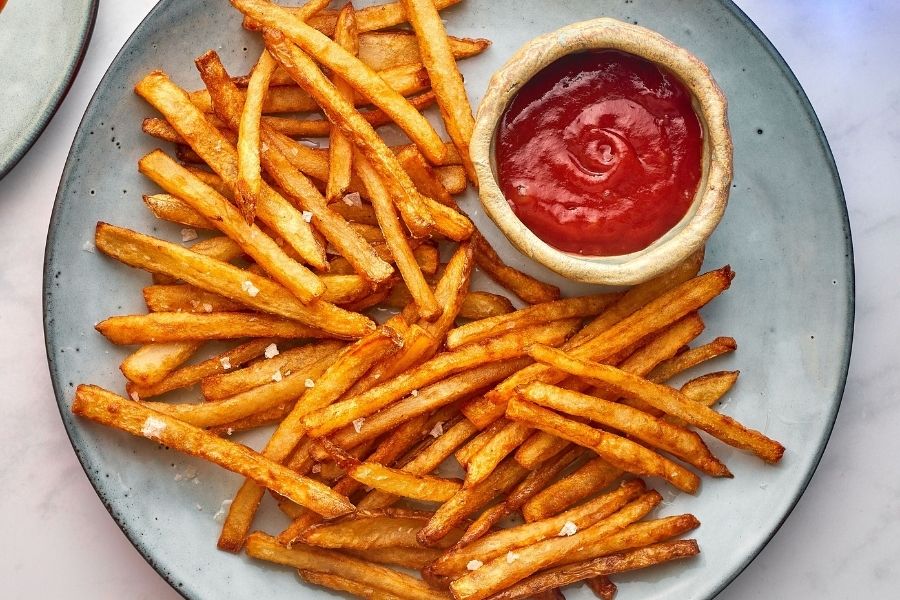Celiac disease is an autoimmune inflammatory disease of the small intestine. It occurs due to an allergic reaction to gluten, protein in cereals such as wheat, barley, and rye. As wheat is the major cereal with gluten, the disease is generally known as wheat allergy. With proper dietary tips for Celiac disease, you will be able to placate this disease to some extent. There is no known cure for the disease at present. The only treatment is dietary management.
A defect in the enzyme system that splits gluten and atrophy of the jejunal mucosa may be a specific cause for celiac disease. You may think it is a rare disease as you have not heard about it until now, but it is widely prevalent in different parts of the world, including India.
About Celiac Disease
Symptoms Of Celiac Disease

- Loss of appetite
- Potbelly
- Diarrhea
- Abdominal pain
- Stools are large, pale, and offensive due to the presence of fat.
- Anemia (low hemoglobin level) due to Celiac disease may lead to paleness, fatigue, fast pulse.
- Flattening of the villi (villi’s task is to absorb the nutrients and vitamins that the body can use. Destruction of the villi will interfere with the body’s ability to digest and absorb nutrients from the food we eat. It leads to deficiencies of various macro-vitamins (calories/proteins) and micro-vitamins (iron, vitamin D, vitamin B12).
- Neurologic disorders, including epilepsy, cerebral calcifications, and neurological neuropathy.
- Celiac disease, for a long period, may lead to malnutrition and complications like osteoporosis, seizures, and convulsions.
Treatment For Celiac Disease
Once the diagnosis of celiac disease is confirmed, there is only known disease treatment: lifelong avoidance of gluten from the diet. Therefore, one with this disease has to follow a gluten-free diet.
Dietary Tips For Celiac Disease
1. Dietary Management

- Avoid food items that contain gluten. Be very careful when you eat out. It is always better to eat, pack something from home, or ask the waiter/chef before ordering any food. Even traces of gluten in the food can be harmful to the person with Celiac Disease.
- The person with Celiac disease must avoid wheat, barley, rye, or any other food product/item containing any of these ingredients – not even in minute quantities.
- Always read food labels before buying any commercial food.
- Continue with the supplements/medicines that the dietician/doctor has advised and the gluten-free diet.
- Take good of small school-going children. It is always better to speak with the concerned authority and teachers, informing them about the disorder, and hence, the reason for not sharing the food.
2. Guidelines On Flours

- Do not buy readymade flours as they may be contaminated.
- Never accept flour from any shop or flour mill when unsure if wheat has been grounded in the other grinder.
- Use a mixer/grinder or masala grinder at home to make flours with various gluten-free grains.
Wheat Flour Substitutes (homemade) Permitted In Celiac Disease
- Corn Flour (Makki ka atta)
- Pearl Millet( Bajra ka atta)
- Buckwheat (Kuttu ka atta)
- Water Chestnut Flour (Singhare ka atta)
- Gram Flour
- Ragi Flour
- Amaranth Flour
- Soybean Flour
- Finger Millet Flour
- Arrowroot Flour
- Potato Powder
- Almond Flour
3. Foods That Can Be Included
- Animal proteins: chicken, dairy products, eggs, seafood, mutton.
- Fats and oils: soybean oil, coconut oil, olive oil, mustard oil, solid fats, and butter.
- Fruits and vegetables: In any form, including fresh, frozen, dried, or canned.
- Gluten-free cereals and pseudocereals: Amaranth, buckwheat, corn, millets, quinoa, rice, sorghum.
- Herbs and spices: All fresh and dried herbs and spices are naturally gluten-free and can be enjoyed liberally.
- Legumes: Beans, lentils, peanuts, peas, and soy.
- Nuts and seeds: Any type, including almonds, cashews, chia seeds, flax, pecans, pine nuts, and walnuts.
4. Foods To Avoid

- Grains – Wheat, barley, oatmeal, and other food items made from wheat flour (semolina, vermicelli, etc.)
- Prepared Food – Noodles, pasta, cakes, bread, bread-roll, pizza, bread crumbs, soup-sticks, oatmeal, commercial juices, cakes, refined flour products, etc.
- Snacks – Patty, burger, biscuits, cutlet, etc.
- Some beverages: Beer and other malted beverages
Avoid foods like wheat and wheat products, biscuits, bread, cookies.
5. Foods Containing Cross-contaminated Gluten Include

- Commercially fried foods: Many cafes/restaurants/hotels fry foods in the same fryer, contaminating gluten-free items like French fries.
- Improper handling of gluten-free items at cafes: Gluten-free items should be prepared with designated gluten-free equipment and a clean pair of gloves.
- Oats: Oats are often processed in the same machine as gluten-containing grains and, therefore, may get contaminated. It is, hence, necessary to consume oats that are specifically labeled gluten-free.
Having a gluten-free diet can be burdensome for those who have gluten-related illnesses, such as Celiac Disease. Many foods have to be avoided and cautioned about, and it can be challenging to know how to put the food items together to make a nutritious and healthy meal. But one must not get disheartened, as with proper guidance and knowledge, following a gluten-free diet would not be difficult.







